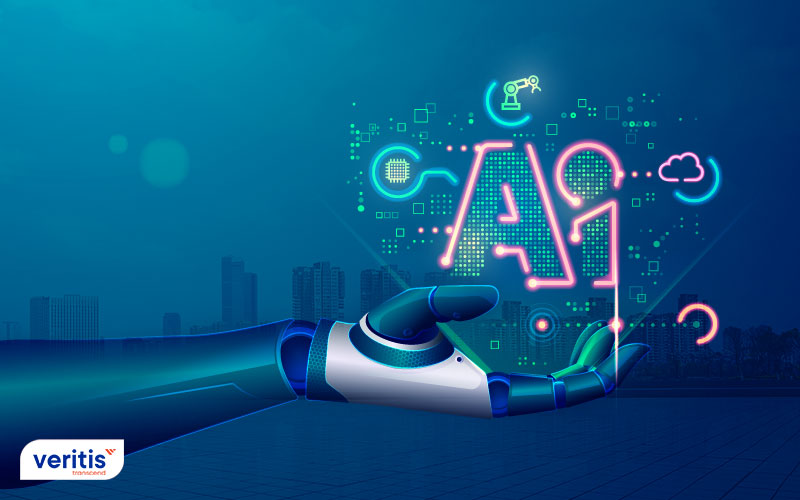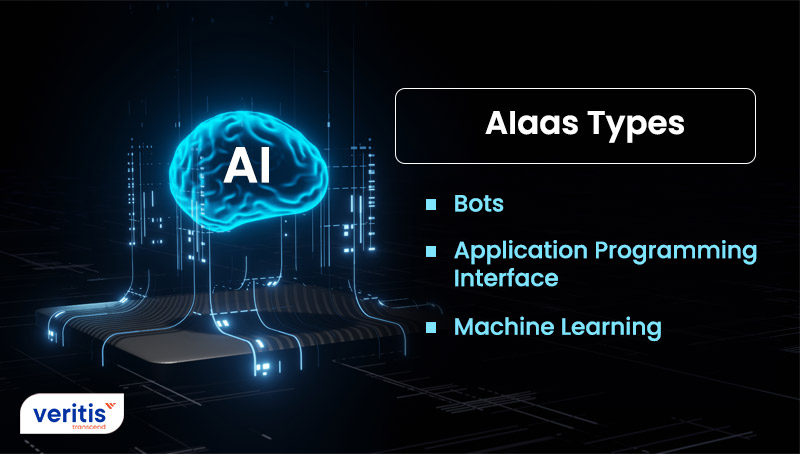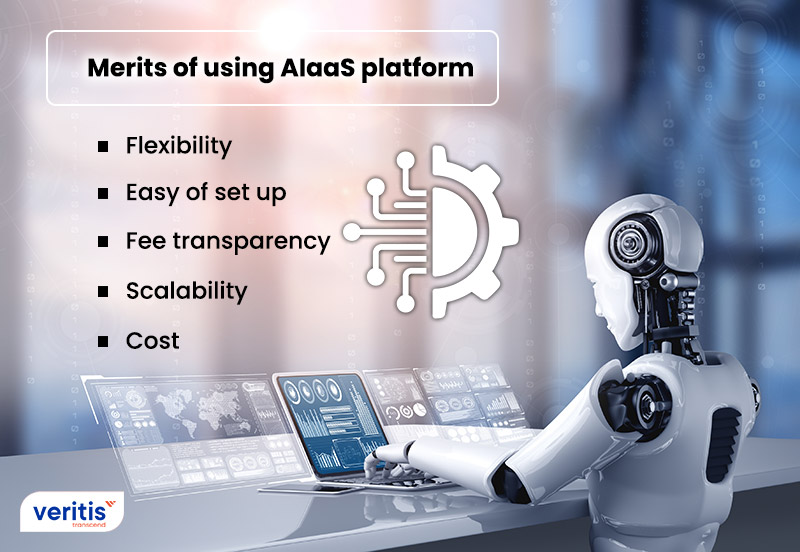
In the past decade or so, Artificial Intelligence (AI) has improved exponentially, solving many issues along the way. This has encouraged multiple organizations, financiers, and governments to invest billions of dollars in AI.
AI is undoubtedly the most emerging, disruptive technology that offers promising opportunities to people relying on technology. It has become more advanced than innovations in various fields. It’s certainly become an integral part of our lives and continues to permeate.
According to a Gartner survey, 70 percent of respondents wanted AI to perform all tasks, such as research work, calculations, simplifying procedures, correcting mistakes, and solving problems. Additionally, more than 57 percent of people desire AI to perform one or two tasks, while 18 percent of survey respondents want the AI to perform more than five tasks.
A separate analysis by Research and Markets estimated that the global market for Artificial Intelligence as a service is expected to grow around USD 11.6 billion by 2024.
Before diving into the article, let’s understand Artificial Intelligence as a service (AIaaS), AIaaS types, and AIaaS merits and demerits.
Artificial Intelligence Introduction

The term AI is not a new technology for researchers. It was first created as the “first artificial intelligence program” known as “Logic Theorist.” John McCarthy planted the seeds of Artificial Intelligence in 1955. In 2011, IBM’s Watson conducted a quiz show that showcased AI solving riddles and complex problems effectively and quickly.
In 2012, Google introduced an Android app feature called “Google Now,” which provides information to the user as a prediction. AI for IT operations has since evolved to play a critical role in automating IT processes and improving operational efficiency across industries. Machine Learning, data science, deep learning, the Internet of Things, and big data are trending technologies in the IT field.
What is AIaaS?
Artificial Intelligence enables a computer brain to think or perform tasks like the human brain. It performs tasks like translating languages, robotic control, playing chess, pattern recognition, and so much more with the affordability and flexibility of a third-party service solution. Computers can perform specific tasks that only intelligent humans can perform. The term Artificial Intelligence changes its meaning constantly as it recedes.
Artificial Intelligence as a service, also known as AIaaS, is the concept of everything as a tool that offers advanced AI functionalities to an organization with minimal cost. In the last few years, IT industry-leading companies such as IBM (Developer Cloud), Microsoft (Azure), Amazon (Web Service), and Google (Cloud Platform) have started offering AIaaS.
Useful Link: AWS Vs Azure Vs GCP – Choose Your Cloud Platform!
In most cases, companies don’t need to hire a large team of experts to integrate AI, and they don’t require developing AI software in-house. In addition, with an AIaaS model, you can pay for the services you require and upgrade to higher plans when your data and business scale.
AI encompasses disparate technologies, including Natural Language Processing (NPL), computer vision, machine learning, and robotics. Although you may be aware of concepts such as infrastructure as a service (IaaS), platform as a service (PaaS), function as a service (FaaS), and software as a service (SaaS), AIaas also offers ‘as a service’ solutions hosted by a third-party vendor.
How Does Artificial Intelligence as a Service Work?
Artificial Intelligence as a Service (AIaaS) offers a convenient solution for organizations, allowing them to consume AI in the same straightforward manner as any other cloud service. This eliminates the need to build and maintain complex infrastructure or hire large AI teams, providing a sense of relief from these burdens.
Here’s how it works:
1) Cloud-based Delivery: AI capabilities, including NLP, vision, predictive analytics, and generative AI, are hosted on platforms such as AWS, Azure, Google Cloud, or IBM Cloud.
2) APIs and SDKs: These tools act as intermediaries, allowing businesses to connect and integrate AI models directly into their applications. For instance, a fintech app can call an API for fraud detection, while an e-commerce store can use AIaaS for personalized recommendations.
3) Flexible Consumption: Most providers offer subscription based or pay per use billing, making AI adoption cost-efficient and scalable.
4) Provider-managed Operations: The cloud vendor manages infrastructure, training, model updates, and compliance, freeing businesses to focus on outcomes, not maintenance.
This AI as a cloud service model, democratizes access to advanced AI, making it as simple as subscribing to email hosting or cloud storage
AIaaS Types

Multiple AIOps services are currently available in the market, and enterprises must pick the correct AIaaS tool type. Doing so lets you know about the multiple types of services in artificial technology. Broadly, there are three best types of AIaas solutions, and they are
- Bots
- APIs (Application Programming Interface)
- Machine Learning
1) Bots
In the current era, whether you search the web for educational websites or shopping stores, you will likely come across bots known as chatbots. Chatbots are text- or voice-based interfaces that simulate a natural human conversation.
Chatbots typically interpret and process the user’s text, providing an instant preset answer. They combine machine learning capabilities and natural language processing (NPL) algorithms to understand human conversations and provide relevant information.
Text-based chatbots are deployed online on social media platforms and websites, while voice-based chatbots are used for sorting customer service and call deflection. They are increasingly used nowadays, and one can witness them when you contact a company’s customer care. The chatbot gathers the required preliminary information, making it easier for both the customer and help desk personnel to better understand the issue.
2) Application Programming Interface (APIs)
An Application Programming Interface (API) is a software intermediary that enables two applications to communicate with each other. APIs permit developers to add a new service to their application without writing the code. We can utilize APIs for various tasks, including extracting entries from text, Natural Language Processing, emotion detection, computer vision, Conversational AI, and more.
3) Machine Learning
ML is a member of the Artificial Intelligence family and is evolving fast. Using various programming techniques, enterprises utilize it to analyze and identify patterns in large datasets, streamline processes, and make predictions. AlaaS makes it simple to adopt machine learning technology for business.
Best AIaaS Platforms for Enterprise Business
In 2025, AIaaS platforms will have become accessible to even small and medium-sized businesses (SMBs), enabling them to adopt enterprise-grade AI without incurring large upfront investments.
- Google Cloud Vertex AI provides AutoML, NLP, vision APIs, and pre-trained generative AI models that small teams can integrate with minimal coding.
- Microsoft Azure AI provides AI APIs and SDKs that encompass speech, translation, and cognitive services, enabling SMBs to build intelligent applications easily.
- Amazon AI Services (Lex, Polly, Rekognition) integrate directly with AWS infrastructure, allowing small businesses to seamlessly add chatbots, speech synthesis, or image recognition to their apps.
- BigML and H2O.ai are emerging as popular choices for SMBs. These platforms offer lightweight machine learning as a service, coupled with intuitive interfaces.
These AIaaS solutions in 2025 are typically delivered through flexible subscription plans or pay-as-you-go billing, ensuring SMBs can scale usage as their AI maturity grows.
Merits of using AIaaS platform

- Flexibility – It’s flexible. AIaaS offers customization options, and users can implement AI services to their business needs.
- Easy to set up – It’s simple, and no complicated installation is required. Users can access the required AI features directly.
- Fee transparency – It’s transparent. You are only liable for paying for the AI tools that you use.
- Scalability – It’s scalable. Companies can check whether AIaaS successfully completes tasks with profits by starting small projects. If they are satisfied, they can scale up or down as per their requirements.
- Cost – AIaas is a cost-effective solution. Cost-saving is the main point of the emergence of AIaaS in the IT industry. Organizations don’t have to invest a substantial upfront cost; they only need to pay for the usage.
Demerits of using AIaaS platform
- Security concerns – Artificial Intelligence depends on data, so your organization must share information with a third-party vendor. Privacy-enhancing technologies like data masking should protect the organization’s data.
- Price – The long-term cost is one of the disadvantages of the AIaaS tool. The ongoing costs can quickly pile up as companies add multiple AI features to their business. If you want to continue accessing the resources from the AIaaS service, you have to pay a heavy initial price. Opting for rental agreements will find better profitability.
- Transparency – In the AIaaS solution, users are entitled to use the services the provider offers but don’t have access to its inner workings. Understanding the underlying process of AIaaS algorithms is complex, which leads to confusion regarding the system’s input and output.
- Reliance – Since you rely on multiple third-party vendors, you must provide data AI software that the industry needs according to its requirements. This can pose a threat to data privacy and security.
Useful Link: 10 Ways Artificial intelligence (AI) is Transforming DevOps
Key Benefits of AIaaS for Enterprise
AIaaS is rapidly becoming a cornerstone of enterprise digital transformation. The benefits in 2025 extend well beyond cost savings:
1) Rapid Innovation: With AIaaS, enterprises can leapfrog into the future, leveraging generative AI cloud services to prototype chatbots, digital twins, or recommendation engines in a matter of weeks, rather than years.
2) Business Automation at Scale: AIaaS powers business process automation in HR, finance, customer service, and IT operations, reducing manual effort and accelerating throughput.
3) Flexible Subscriptions: Enterprises can scale consumption with AIaaS flexible subscription models, paying only for what they use. This lowers entry barriers and supports experimentation.
4) Faster ROI: By outsourcing infrastructure and AI expertise, enterprises can achieve value more quickly compared to building in-house AI systems.
5) Governance and Security: Many AIaaS providers offer enterprise innovation safeguards like explainability, compliance (GDPR, HIPAA), and encryption, ensuring trust and risk mitigation.
For C-suite leaders, AIaaS enables enterprise innovation while aligning costs with outcomes. It transforms AI from a capital expense into a strategic, on-demand capability.
Artificial Intelligence as a Service (AIaaS) vs Machine Learning as a Service (MLaaS)
While often used interchangeably, AIaaS and MLaaS serve different needs:
- AIaaS: Offers ready made, plug and play AI services such as chatbots, voice recognition, image classification, or generative AI text/image tools. These are delivered via APIs and SDKs, requiring little technical expertise. AIaaS is ideal for businesses seeking the rapid deployment of AI features without requiring model development.
- MLaaS: Focuses on providing machine learning as a service, including data preprocessing, model training, hyperparameter tuning, and deployment environments. Platforms like Amazon SageMaker, Google Vertex AI, and Azure Machine Learning enable enterprises to build and train custom models, making MLaaS an ideal choice for organizations with more advanced AI roadmaps.
Key Difference: AIaaS provides immediate, out of the box intelligence, whereas MLaaS facilitates the development of custom models for organizations with more advanced AI roadmaps. Many enterprises use both strategically: AIaaS for quick wins and MLaaS for long-term, domain-specific AI innovation, providing a balanced and comprehensive AI strategy.
Case Study: Leveraging AIaaS to Optimize Automotive Operations
A leading automotive company partnered with Veritis to modernize its IT landscape using AI-driven solutions delivered through a service-based model.
Challenge: The company struggled with system inefficiencies, delayed incident responses, and limited visibility across its IT infrastructure, hindering operational agility.
Solution: Veritis deployed an AI-powered AIOps solution through a flexible AI-as-a-Service (AIaaS) model. This enabled real-time monitoring, automated root cause analysis, and intelligent incident management without the need for heavy in-house AI infrastructure.
Results:
- Quicker detection and resolution of IT issues
- Improved uptime and operational efficiency
- Scalable AI integration without added infrastructure burden
This case illustrates how AIaaS can deliver enterprise-grade intelligence and automation, empowering businesses to optimize operations while minimizing complexity and cost.
Read the Full Case Study: Transforming Automotive Operations with AIOps
Conclusion for Artificial Intelligence as a service

AI is a rapidly growing technology and will discover multiple niches in the coming years. Artificial Intelligence as a tool enables organizations to leverage ML, AI, and other solutions without incurring significant maintenance overheads, the need for skilled personnel, or the expense of infrastructure.
Although AI is rapidly used in major IT firms, its execution is still expensive and challenging. As an alternative, industries can utilize artificial intelligence (AIaaS) as a service to fulfill their requirements. AIaaS is the ideal solution for various purposes, offering minimal risk and a low initial investment. According to industry experts, AIaaS is expected to grow at a tremendous annual rate of 34.9%, with the market projected to reach over USD 100 billion by 2025.
AIaaS is always ready to encourage new services and innovations. With this thought-provoking article, the Veritis team looks forward to further discussions with clients about utilizing the AIaaS tool within their organizations.
Veritis team can help you drive smart evolution for your business and technology with Artificial Intelligence as a service (AIaaS) tools, along with tailored AIOps solutions. Our team of experts will guide you through implementing the right AIaaS and AIOps tools in your company to increase your business growth at an affordable cost.